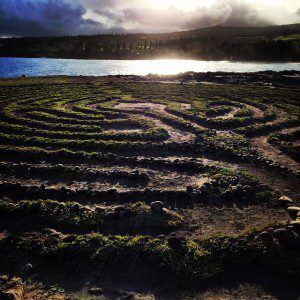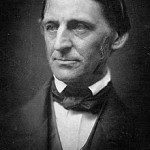God’s plan for your life isn’t a map you see all at once, but a scroll unrolled a little at a time, requiring faith. ~Rick Warren, pastor and author

In Christian circles, it’s common to believe that God has a plan for your life. It’s an idea called predestination (aka religious determinism) and, as hinted at by the quote above, it basically means that all the events in your life have been predetermined by God. To back up this claim, the following Biblical passage is frequently cited:
For I know the plans I have for you,” declared the Lord, “plans to prosper you and not to harm you, plans to give you hope and a future.” ~Jeremiah 29:11
Now this may be comforting to some, but for a lot us this idea has a couple of issues. Problem one: What about free will? Don’t I get a say in what happens in my life? Problem two: How do I know what my plan is? Do I need to live my life on autopilot waiting for my plan to reveal itself?
Well, there are answers to these questions and they come from the person who I believe is our all-time greatest American spiritual philosopher: Ralph Waldo Emerson. It should be noted here that Emerson is a former Unitarian minister who left his post at age 29, as he could no longer live abide by the church’s rigid dogma. So his ideas are not (solely) Biblically-based. (See more on Emerson’s spiritual philosophy here.)

Emerson was convinced we all had a preordained path in life, but also thought that you and I play a vital role in calling the shots. According to noted Emerson scholar Richard Gelhard, RWE believed in a “subtle order of divinity which lay beneath and behind the manifest world.” This meant that “human beings don’t have power…the universe does; it is full of power; flowing, waiting and accessible.
Yet Emerson also believed that “an individual who understands the laws of power can move into its flowing and allow it to wield its instruments.”In other words, by engaging with the flow of life, we can tap into this power source and use it to help guide us down the proper path.
In an essay titled Spiritual Laws, Emerson wrote that there was “guidance for each of us” that could help us “hear the right word”. He believed this higher power was self-evident if we stayed alert to our surroundings:
A little consideration of what takes place around us every day would show us that a higher power than that of our will regulates events; that our painful labors are unnecessary and fruitless; that only in our easy, simple, spontaneous action are we strong, and by contenting ourselves with obedience we become divine.
In another passage from the same essay, Emerson more passionately states his belief in a higher power that can comfort and guide us:
A believing love will relieve us of a vast load of care. O my brothers, God exists. There is a soul at the center of nature and over the will of every man…it has so infused its strong attachment into nature that we prosper when we accept its advice.
Like Emerson, another noted American spiritual philosopher, Ram Dass, also has a belief in the power of intuition to guide us. In this passage from his book Paths to God: Living the Bhagavad Gita, Ram Dass instructs us to use this inner sense of direction to our advantage:
Begin paying more attention to the inner voice of our intuition, because that’s the clue to what we should be doing. We start to listen to the tiny, intuitive whisper that the Quakers call “the still small voice within”.
My take is that Emerson’s ideas ring true: there is a personal plan for each of us to follow. If we listen to our intuition and the divine guidance we can find within, we can steer ourselves in the right direction. To help us, signposts, clues and coincidences appear along the way to verify we are on the correct life path or to help point us to a new one.
Of course, there is still free will, so you can always choose to make decisions that are strictly based on your own brain power and whims. But for me, it’s a little more comforting to know that assistance is available when and if you want it.












